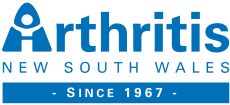
Current research demonstrates that sedentary work and lifestyle behaviours have a profoundly negative affect on our health status; the message is loud and clear – sitting at your desk or on your couch for extended periods may now be seen as a high risk activity. While sedentary occupations or activities may not necessarily be exposed to the hazards associated with more physically demanding occupations or activities, they are exposed to an increased risk of lifestyle diseases (for example, obesity, diabetes, cardiovascular disease, and cancer to name a few), and musculoskeletal conditions, such as neck and low back pain, and in particular, arthritis. This is due, in part, to the prolonged and uninterrupted sedentary behaviour of which typically comes with a “desk” job or sedentary lifestyle. Couple this with poor dietary choices and stress, and you may see these unwanted conditions emerge sooner rather than later.
There is, however, one very simple action you can put into place to reduce your risk of developing (or worsening) arthritis and other lifestyle diseases but first, what is arthritis?
Arthritis is a prevalent musculoskeletal condition with 1 in 6 Australians having some form of Arthritis. While there are over 100 different types of arthritis, in particular, osteoarthritis (OA) is one of the most common forms of arthritis, and can be described as a wearing or degeneration of the articular cartilage accompanied by pain, swelling and reduced mobility. Cartilage plays a vital role in the function of our joints; it provides a smooth, lubricated surface for low friction articulation and to facilitate the transmission of loads to the underlying bone. The cause of arthritis is complicated and still not fully understood, however, one of the biggest contributors to the development of arthritis, especially OA, is physical inactivity.
To understand why it is important to increase physical activity, and break up sedentary activities and lifestyle habits, you need to be aware of how cartilage stays healthy. The following is a very simplistic explanation and it’s not the whole story but it’s pretty close. Cartilage is free from both blood vessels (a-vascular) and nerves (a-neural), meaning it doesn’t have a nutrition or waste removal service. Instead, it relies on the movement of water in and out of it to feed and keep it clean. In this sense, cartilage is like a sponge as it “soaks” up what it needs. Water is constantly being drawn into cartilage by huge amounts of water loving molecules called Proteoglycans within it, and is then squeezed out by the forces it experiences during movement and loading. The movement of water is essential for cartilage nutrition and removal of waste products. Thus, too little movement of water makes for a very unhappy and dry sponge!
Movement and load keeps our joints well lubricated, thus healthy. Our cartilage and other tissues in our joints are well nourished when water (i.e. synovial fluid) is routinely pumped around. What happens when we sit or stand still for long periods is the fluid becomes “stagnated”, and the mechanical pump action in our joints isn’t triggered, thus the fluid that keeps our joints and cartilage lubricated is reduced. It’s imperative that cartilage is kept lubricated to ensure it remains robust through time (i.e. aging), and smooth and slippery to allow for pain free movement. This is where ‘reduce and interrupt’ comes into effect. Reduce and interrupt your sedentary behaviour at work and at home as often as you can so you keep your joints healthy and happy. Every hour, take 5 minutes to stand up and move around to load and lubricate your joints. Taking a brief walk, walking the stairs a few times, or performing as little as 10 squats/sit to stands at your desk or lounge is enough to break up the sedentary behaviour to save your joints. And remember, reducing and interrupting your sedentary behaviour is not only going to reduce the risk of developing or worsening OA, but it will also reduce your risk of developing other lifestyle diseases.
Kat Keane
Health Educator at ANSW
Have questions? You can email Kat: kkeane@arthritisnsw.org.au
Arthritis NSW – we’re here to help
We’re here to help whenever you need us. We have a variety of options available for support and information.
- Register for our free webinars here
- For more BLOG articles about managing your arthritis, please visit our News page here.
- Sign up to eNews to get information and advice on managing your condition
- Call our free helpline on 1800 011 041 (Monday to Friday, 9am to 5pm)
- We are a health charity, help us to deliver our services – donate here
- Join our online community: Follow us on Facebook or Instagram
- Subscribe to our magazine, more info here
- Become a member, more info here
